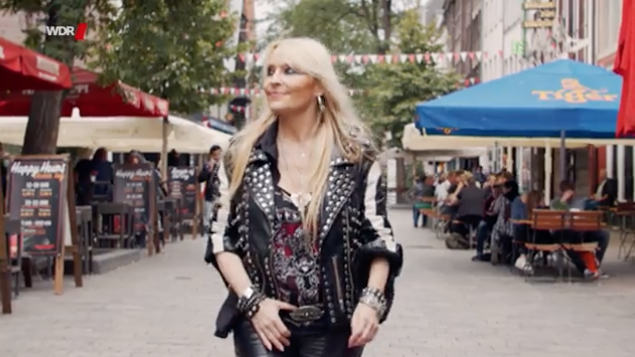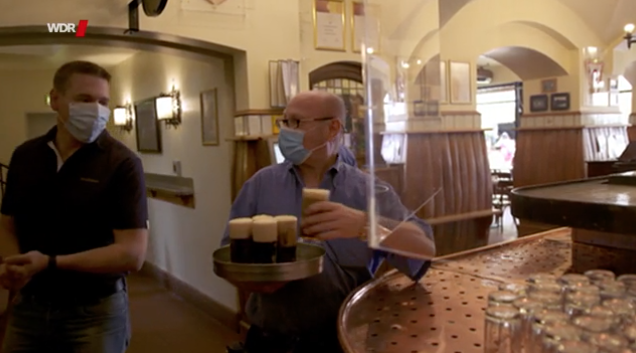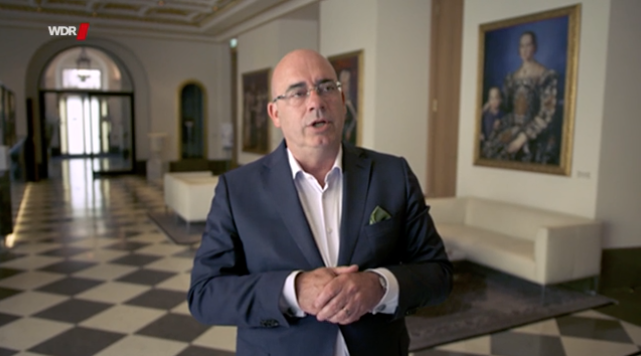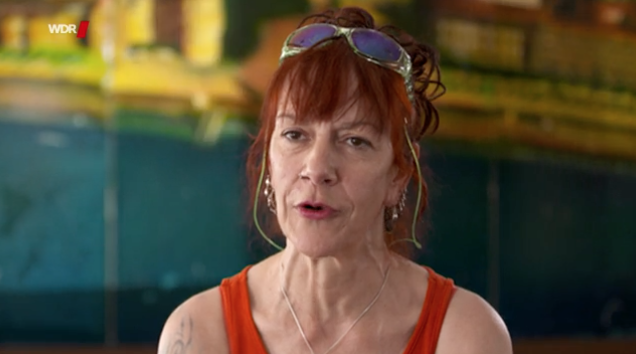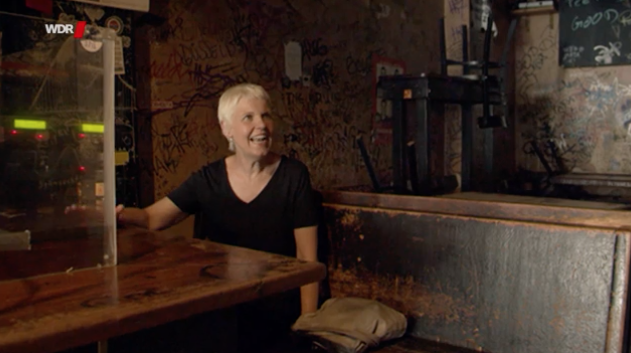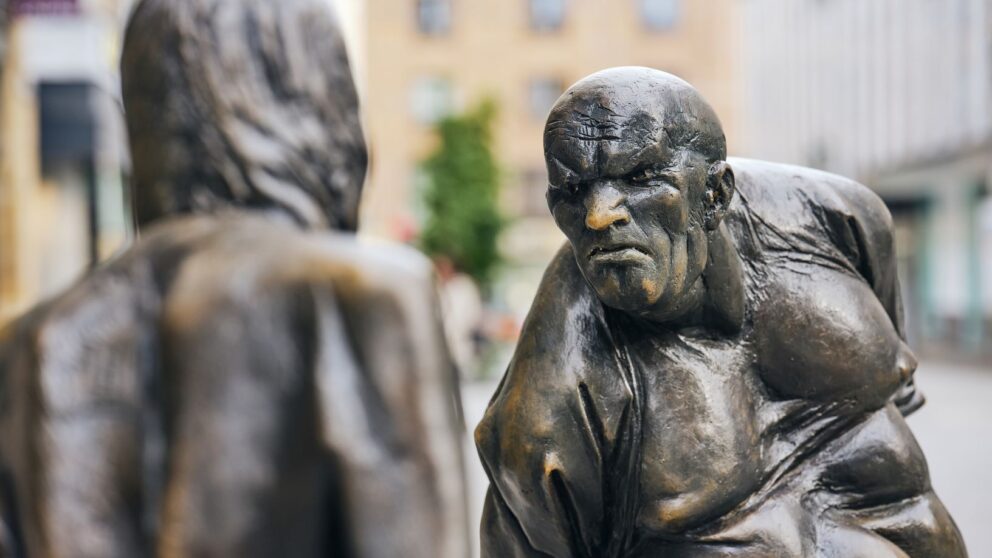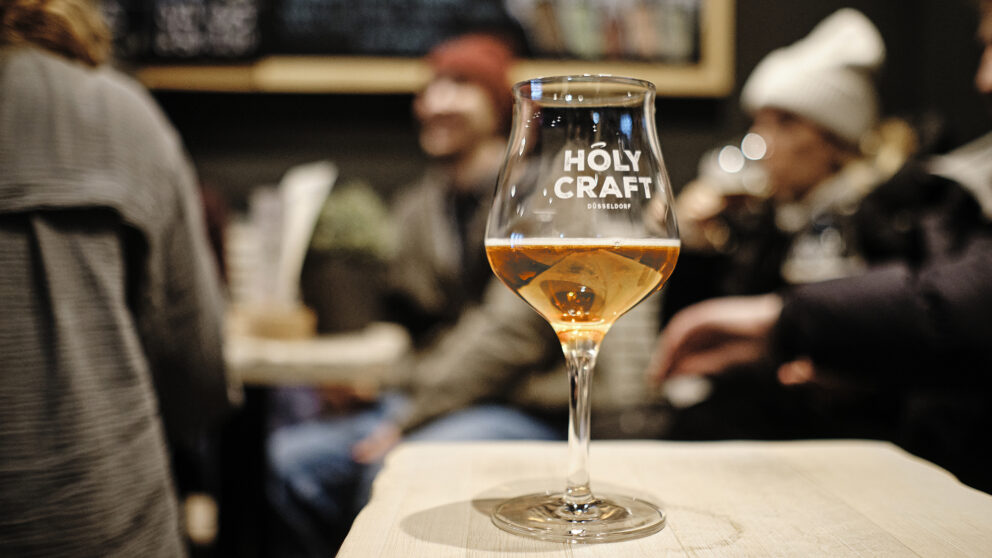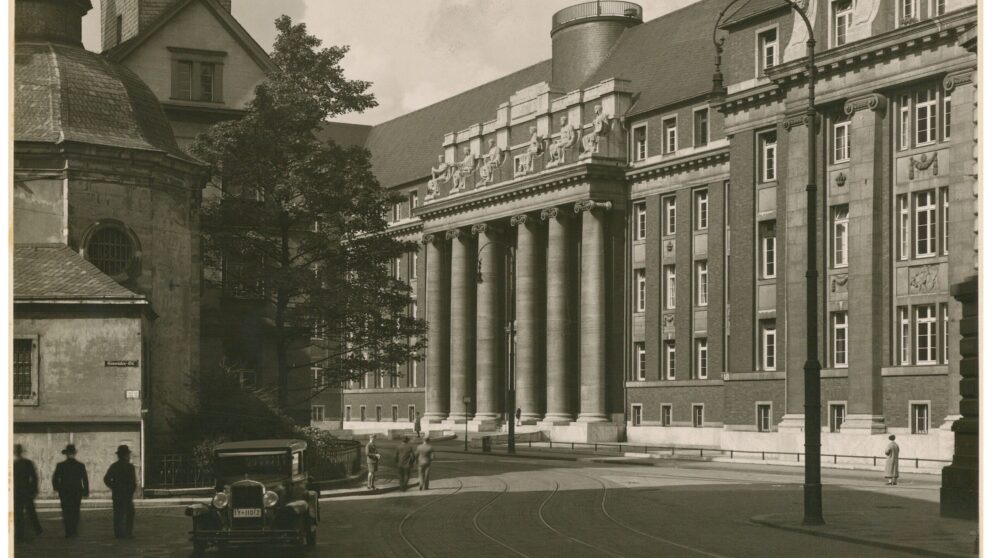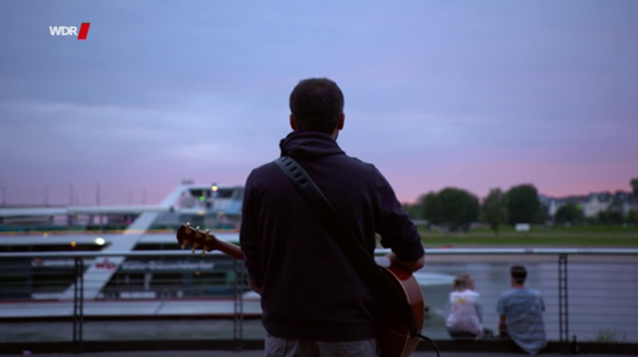
"The old town lives on tolerance"
Interview on the WDR documentary about Düsseldorf's Old Town
"The old town lives on tolerance"
Interview on the WDR documentary about Düsseldorf's Old Town
Oliver Schwabe has made a fascinating film about our oldest city district for WDR. The documentary "Düsseldorfer Altstadt - Zwischen Party, Punk und Weltruhm" (Düsseldorf's Old Town - Between Party, Punk and World Fame) gives an insight into the eternal microcosm where artists, beer brewers and hotel managers come into contact with each other in just a few square meters. A conversation about what makes the Altstadt so unique.
Oliver Schwabe, Kraftwerk launched their world career in Creamcheese, Joseph Beuys changed the art business from the academy - why does the old town always function as a creative nucleus?
I think the old town thrives on tolerance and typical Rhineland "live and let live" - and this mentality also allows free spaces in which something new can develop.
You've already made your second film about Düsseldorf's old town. What fascinates you so much about this part of town?
What interests me is actually the encounter between tradition, customs and precisely what was able to emerge in Düsseldorf in the immediate vicinity of art and music. Especially with regard to music, what happened in the Ratinger Hof shaped my musical socialization at the end of the 1970s. The proximity between different scenes makes the Altstadt interesting, because a lot is possible at the same time and next to each other!
You went to the traditional Zum Schlüssel brewery, which is slowly recovering from the lockdown, and talked to the brewmaster. What's the mood like in the big home breweries?
Well, rather cautiously. Also because it is not foreseeable when we will have overcome the pandemic. In the key, people are taking it in their stride and are happy about the rising sales figures. But a second lockdown would be terrible.
And what is the situation at the luxury Hotel De Medici? The hotel director says that in the spring he alone lived in 11,000 square meters...
Hotel director Bertold Reul has used the time to organize concerts in the courtyard of his hotel and offer his rooms as box seats. It's a great idea, and with creative energy, something new always emerges from the crisis that will perhaps endure beyond the pandemic.
Metal singer Doro Pesch, a child of Bolker Strasse, calls the Altstadt a "little New York. What do musicians appreciate about the Altstadt?
Well, certainly the many beers;-)! But of course also the relaxedness of the Düsseldorfers. Doro Pesch is an international star, and yet she can walk quite unmolested through the old town, although she is recognized by many. And people politely ask for selfies with her. It's a bit like New York. When famous musicians walk around in the East Village, they are not harassed by fans either.
You already paid tribute to the Kunstakademie's connection to punk in 2016 in the documentary "Keine Atempause - Düsseldorf, der Ratinger Hof und die Neue Musik". What did art bring to music and vice versa?
In contrast to Berlin or Hamburg, the punk scene here was always more experimental, also in terms of clothes and style. And it also always had a playfulness that was less present in "serious" Berlin (except for "Die Ärzte") or in solid Hamburg. In Düsseldorf, you could try out the scene and have fun doing it. Academy art and music cross-fertilized each other, many musicians were also artists and vice versa.
You've now filmed for the second time with Martina Weith from Östro 430, a punk band that was ahead of its time. What new things did you learn about the old town from her?
Maybe nothing new about the old town, but it's always amazing how naturally an all-female band was part of the scene back then. And Östro in particular certainly contributed a lot to the women's movement. I can speak from my own experience. Östro 430 turned my head as a little 14-year-old back then and shaped my image of women.
One of the most beautiful scenes: Comedian Cordula Stratmann, who went to school in the old town, enters that Engelchen on Kurze Straße and can't believe her eyes that everything is unchanged...
Cordula was really excited about the Engelchen because she was last there decades ago and she felt right at home again! And it's nice to see that there are stores in the old town that endure and don't chase after every fashion. That shows self-confidence!
The town archivist says that the old town has hardly changed over many centuries. Will it remain the old town after Corona?
I think so - everyone longs for the old normality back! We can only hope that we will soon overcome this virus together, so that we can once again live a life of celebration, touching and without fear of infection.
Oliver Schwabe is professor of television dramaturgy at the Academy of Media Arts in Cologne.
